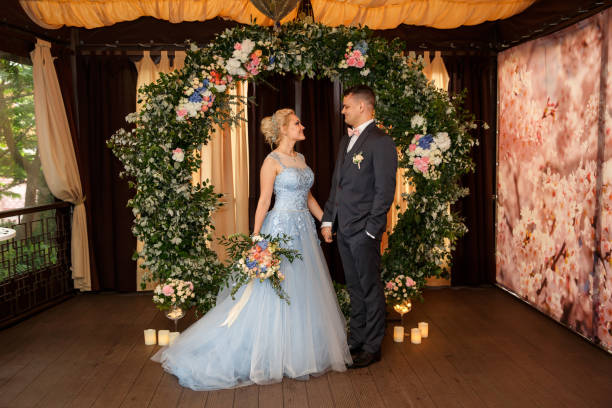Ten years have passed since the historic enactment of the Same-Sex Marriage Act, a milestone in the fight for LGBTQ+ rights. This legislation symbolizes a significant step towards equality, recognition, and acceptance of love in all its forms. Cinema has often been a mirror reflecting societal changes and struggles. In the realm of gay marriage, several films stand out for their poignant portrayal of love, perseverance, and the human spirit. As we commemorate a decade of progress, let’s delve into three powerful films that not only celebrate gay marriage but also illuminate the challenges and triumphs of the LGBTQ+ community.
- “Brokeback Mountain” (2005): Directed by Ang Lee, “Brokeback Mountain” remains an iconic masterpiece that transcends boundaries of gender and sexual orientation. Adapted from Annie Proulx’s short story, the film revolves around the forbidden love affair between two cowboys, Ennis Del Mar (Heath Ledger) and Jack Twist (Jake Gyllenhaal), set against the backdrop of the rugged Wyoming landscape.
The narrative poignantly captures the complexities of their relationship, navigating societal expectations, internalized homophobia, and the harsh realities of living in a conservative era. Despite their profound connection, Ennis and Jack struggle to reconcile their love with the societal norms that condemn it. The film’s enduring impact lies in its ability to humanize the characters, portraying their desires, vulnerabilities, and profound longing for acceptance.
“Brokeback Mountain” challenges conventional notions of masculinity and love, urging viewers to confront prejudice and embrace compassion. Its tragic yet hauntingly beautiful portrayal of love denied by society serves as a poignant reminder of the struggles faced by LGBTQ+ individuals in their quest for equality and acceptance.
- “The Kids Are All Right” (2010): Directed by Lisa Cholodenko, “The Kids Are All Right” offers a refreshing take on modern family dynamics and the complexities of relationships. The film centers on Nic (Annette Bening) and Jules (Julianne Moore), a lesbian couple raising two teenage children conceived through artificial insemination. Their seemingly idyllic life is disrupted when their children seek out their biological father, Paul (Mark Ruffalo), leading to unexpected consequences.
What sets this film apart is its portrayal of a same-sex couple grappling with ordinary domestic challenges, ranging from communication issues to infidelity. Nic and Jules’ relationship undergoes strain as they confront insecurities and vulnerabilities, yet ultimately reaffirm their commitment to each other and their family.
“The Kids Are All Right” celebrates the diversity of modern families and challenges traditional notions of parenthood and marriage. By depicting a same-sex couple navigating the complexities of love and family life, the film normalizes LGBTQ+ relationships and underscores their validity and resilience.
- “Love, Simon” (2018): Directed by Greg Berlanti, “Love, Simon” is a coming-of-age romantic comedy-drama that resonates with audiences of all ages. Based on Becky Albertalli’s novel “Simon vs. the Homo Sapiens Agenda,” the film follows Simon Spier (Nick Robinson), a high school student who grapples with his identity as a gay teenager while navigating the ups and downs of adolescence.
What sets “Love, Simon” apart is its universal appeal and relatable portrayal of the coming-out experience. Simon’s journey towards self-acceptance and authenticity is depicted with warmth, humor, and sensitivity, resonating with LGBTQ+ individuals and allies alike.
The film also highlights the importance of acceptance and support from friends and family in the LGBTQ+ community’s journey towards equality. By normalizing the coming-out process and celebrating love in all its forms, “Love, Simon” inspires empathy, understanding, and inclusivity.
As we commemorate ten years of the Same-Sex Marriage Act, these three powerful films serve as a testament to the progress made in the fight for LGBTQ+ rights. From the sweeping landscapes of “Brokeback Mountain” to the intimate portrait of family life in “The Kids Are All Right” and the universal coming-of-age story of “Love, Simon,” these films celebrate the diversity, resilience, and humanity of the LGBTQ+ community.
While significant strides have been made towards equality, the struggle for acceptance and recognition continues. Cinema plays a vital role in amplifying LGBTQ+ voices, challenging stereotypes, and fostering empathy and understanding. As we look towards the future, may these films inspire conversations, encourage empathy, and pave the way for a more inclusive and equitable society where love knows no boundaries.
